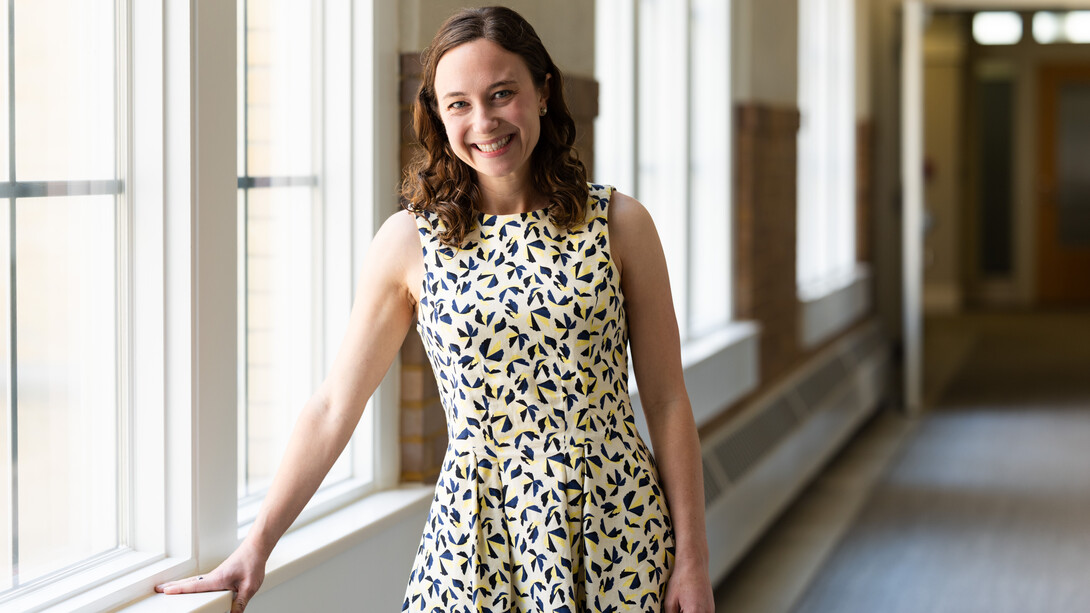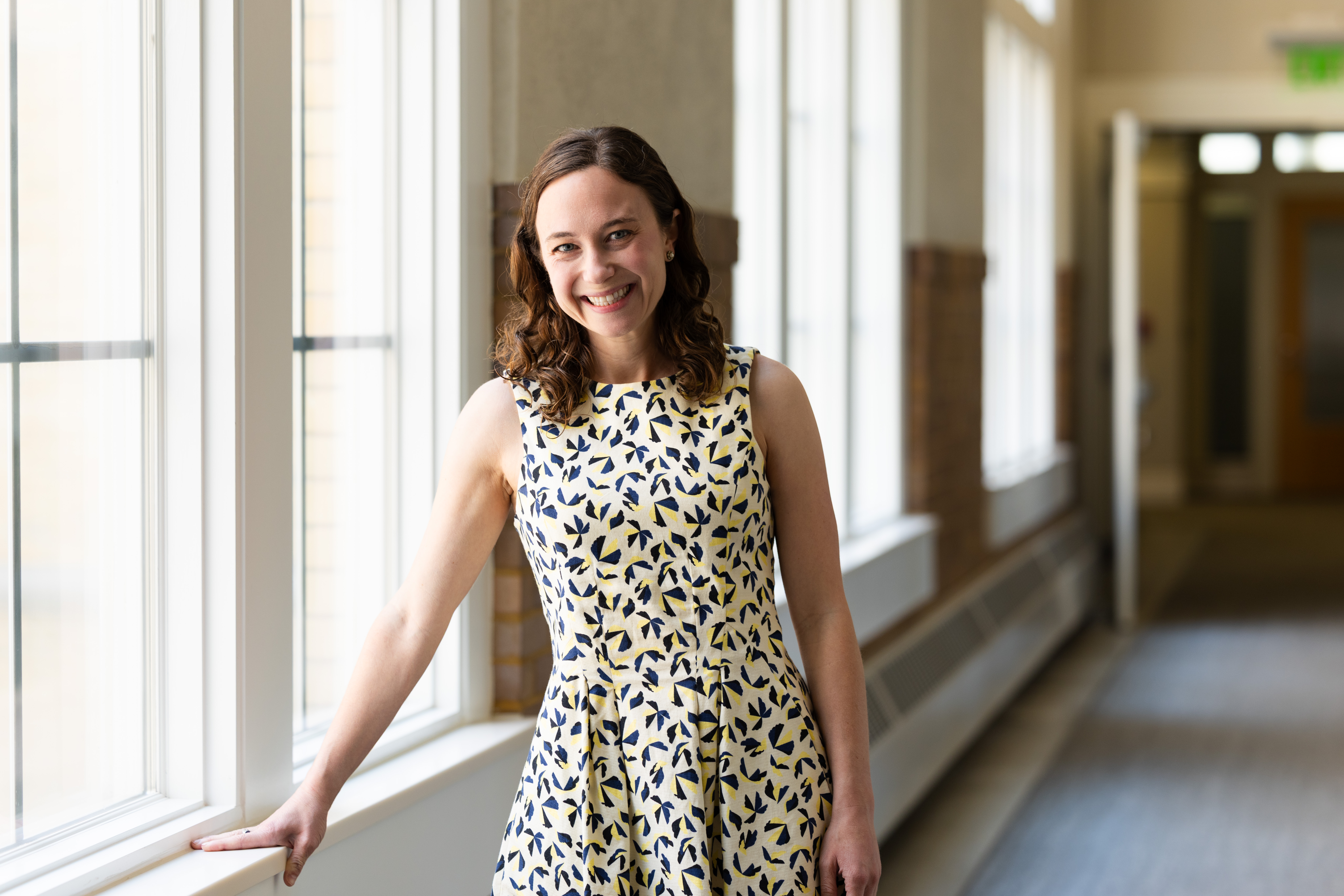
There are widely recognized points of transition during students’ K-12 careers: the jump from preschool to kindergarten, and the shift from elementary to middle school, for example.
Husker developmental psychologist Jenna Finch says there’s a less recognized, but equally pivotal, leap: the jump from second to third grade. It’s a shift with some major changes — higher behavioral expectations, high-stakes standardized testing, a switch from “learning to read” to “reading to learn,” and brand-new math concepts like fractions, multiplication and division.
But the second-to-third transition is understudied, and students and parents often lack awareness and resources during this inflection point.
“If you talk to teachers and administrators, they know that this transition is a big one. But there has been almost no research trying to understand what is changing in these classrooms from second to third grade,” said Finch, assistant professor of psychology. “And there is a group of students who need additional support who aren’t getting it.”
Finch will use a five-year, $928,922 grant from the National Science Foundation’s Faculty Early Career Development program to develop the first clear snapshot of the forces shaping the transition to third grade. Her first-of-its-kind, multi-method study will explore how children’s self-regulation skills are tied to their math achievement and attitudes, and how their classroom experiences in math instruction change from second to third grade. In partnership with Lincoln Public Schools, Finch will conduct her work in high-poverty schools, where academic struggles are often magnified by resource deficits.
Finch is focused on math because of its tight link to STEM success. Early math achievement and positive attitudes are critical to long-term success in STEM fields, but often, disengagement sets in around third grade. Finch’s data will paint a clearer picture of how teaching strategies, students’ skills and attitudes, and curricula cumulatively drive these declines. Her findings will also pinpoint targets for future intervention programs.
“Often people try to re-engage with disengaged students in middle and high school,” Finch said. “But my thought was: Can we prevent that? Can we catch them before they begin to disengage from school and provide them with support?”
Finch’s study will follow about 430 students across nine Title I LPS schools throughout second and third grades. Using assessments, surveys and observation, Finch’s team will collect a variety of data, including information focused on students’ math skills, executive functioning abilities and attitudes toward math. The researchers will also observe math instruction to gauge the quality of content delivery, as well as individual student behavior during class.
“Two students can be in the same classroom but spend their time very differently,” Finch said. “One student might be on task and working, whereas another student might be wandering around sharpening their pencil. We want to understand if there are links between these classroom experiences at the individual level and growth in math skills and attitudes.”
The team will also engage in one of the first explorations of how executive functioning skills — the self-regulation skills that help students plan, multi-task and control impulses — influence math attitudes. Though researchers have investigated how executive functioning skills support math achievement, little is known about their relationship to math attitudes. Finch will test her hypothesis that students with better self-regulation skills more readily adopt classroom behaviors conducive to learning, which enables them to enjoy class experiences and fosters positive feelings about math.
When the research concludes, Finch hopes her findings will form the groundwork for an LPS summer experience that prepares rising third graders for the challenges ahead.
“I have a vision for a summer bridge program that gets students ready academically and also behaviorally for the third-grade year,” Finch said. “Part of that would be engaging with parents and encouraging them to do things at home that will help their students transition to third grade.”
For the educational component of her CAREER project, Finch is developing the Transitioning to Third (T3) Program, a partnership between the University of Nebraska–Lincoln and LPS aimed at supporting third-grade math achievement. The collaboration — intended to serve as a model for university-public school partnerships — enables Nebraska faculty and students to work with local Title I elementary schools in multiple ways, including development of parent outreach nights featuring tips and information drawn from the team’s research results.
The team will also create research briefs for teachers, which will use clear, understandable language to describe take-home points from the project and ways to put them into action in the classroom.
Finch’s team will also train undergraduate and graduate students in conducting classroom-based research.
The National Science Foundation’s CAREER award supports pre-tenure faculty who exemplify the role of teacher-scholars through outstanding research, excellent education and the integration of education and research.








